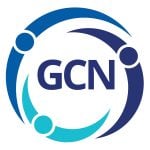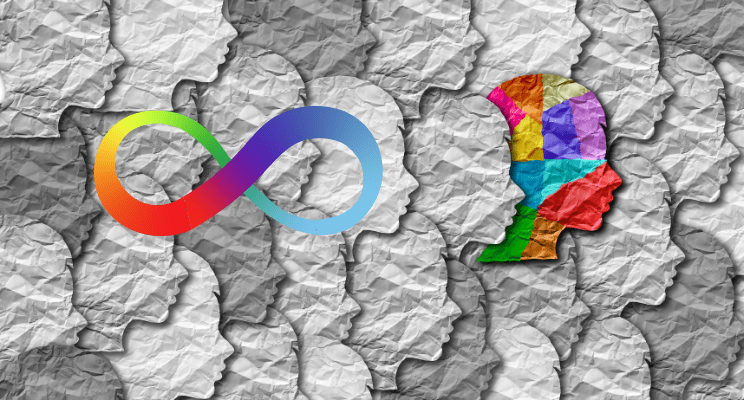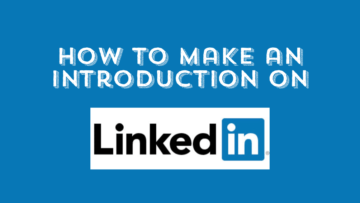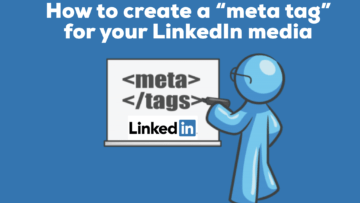April is Autism Acceptance Month. Autistic people are neurodiverse and hiring neurodiverse employees can create a workforce with more innovation.
Hiring neurodiversity. It should be happening in the workforce and not just during Autism Acceptance Month, but EVERY month!
TW: I am neurotypical and am aware that some links may be offensive to the neurodiverse community.
Unfortunately, not all neurodiverse individuals are treated the same way as their neurotypical counterparts.
They don’t necessarily look different, but there is a very good chance they may act differently. Many have quirks or idiosyncrasies, along with their brilliant gifts and talents.
The neurotypicals around them may need to exercise a little more patience or understanding, as well as have an open mind and accept that they are different.
So what exactly is neurodiversity? Why should employers be hiring neurodiversity?
It is a term used to describe “a variety of conditions related to cognitive abilities, though more often people with these conditions prefer neurodiverse. It applies to conditions such as autism, dyslexia, dyscalculia, attention deficit hyperactivity disorder (ADHD), and obsessive compulsive disorder (OCD). Neurodiverse individuals often struggle with soft skills, especially ones that apply to social interactions. Unexpected physical behaviors like standing too close to someone or speaking too loudly occur for people on the autism spectrum, self soothing movements like rocking or irregular hand movement may also be present,” as defined in this blog.
Autism is not a condition that is a result of an injury or a disease, but is a neurological difference.
Autism, Dyslexia, Dyscalculia, ADHD, and OCD are examples of neurodiversity.
Autism, for example, “is one disability covered under the American with Disabilities Act (ADA),” according to Marc E Weinstein, Esq., of M E Weinstein Law. “After someone accepts a job offer, they can ask for accommodations when they provide an official diagnosis.
“The law requires the employer to engage in the process,” according to Weinstein. If an employer does not have a form for the employee to request reasonable accommodations, they can find resources on Google, including a form from SHRM.
A Harvard Business Review article by Gary Pisano, notes some autism statistics and that unemployment for workers on the spectrum could lean towards 80%, while many are underemployed.
Many employers may not realize there are tax credits that may be available for hiring employees on the autism spectrum, as shared in a previous article, which also notes some autism-friendly employers and why I am an advocate.
April is Autism Acceptance Month and a month to #CelebrateDifferences and exercise understanding, though this should be occurring 24/7/365.
The symbol for neurodiversity is the rainbow infinity loop and not the puzzle piece. You can read about WHY the puzzle piece symbol is offensive to many in the autistic community, as well as what are good autism advocacy organizations vs bad autism “charities” in this article, according to that author. Especially read the five calls to action at the end of the article for some food for thought.
Hans Asperger, an Austrian pediatrician, which Asperger’s Syndrome was named after, was actually collaborating with the Nazis and their eugenics program.
The extent of where the child was on the autism spectrum was a determination of whether a child would live or die in the concentration camps.
Asperger’s Syndrome, or Aspie, is not appropriate to use as a diagnosis; it is Autism Spectrum Disorder.
Because I just learned this, I will never use Aspergers again and am sharing this knowledge so others may also be respectful.
Out of further respect to the autistic community, I purposely did not write on April 2nd about “World Autism Awareness Day” and did not use #lightitupblue or #lightupblue. Accepting those with autism is not just for one day. It’s about acceptance EVERY day.
As the author of this Forbes article noted, “you can do some real work that can make a real difference for autistic people.” Everyone wants to feel like they belong.
Everyone has feelings, so be cognizant of Maya Angelou’s quote:
“I’ve learned that people will forget what you said, people will forget what you did, but people will never forget how you made them feel.”
So how does all of this relate to LinkedIn?
You can search “Autism” or other related keywords in the search bar of LinkedIn for posts, people, groups, companies, jobs, schools, and events if you want to learn more.
If you are seeking hashtags for articles, posts, and more on LinkedIn, here are some hashtags that individuals are using. This list also includes some hashtags NOT preferred by the autistic community, but they exist:
#AbilityNotDisability #ActuallyAutistic #Autism #AutismAcceptance #AutismAcceptanceMonth #AutismAwareness #AutismAwarenessMonth #AutismCommunity #AutismSpectrumDisorder #AutismSupport #CelebrateDifferences #LightItUpGold #Neurodivergent #Neurodiversity #RedInstead #ToneItDownTaupe #WorldAutismAcceptamceDay #WorldAutismDay
You can also do more refined Boolean searches with keywords either on LinkedIn or on Google for LinkedIn.
Even though LinkedIn is not just a job-seeking platform, there are definitely autistic people on LinkedIn looking for jobs.
They may interview a little differently for jobs, but it does not mean they are unqualified.
Interviews could be very stressful if individuals have social anxiety, challenges with making eye contact, or sensory conditions. They may also take things literally. Some may also have some challenges articulating their answers and communicating.
Once hired, autistic employees might actually blow you away if they get into a hyper-focus mode on projects along with their attention to details.
Offer to be a mentor and maybe a reverse mentorship might ensue. They may have amazing gifts and talents and uncover problems you did not even know you had as an employer.
Bottom line – Give them a chance! They deserve the right to earn an income, just like their neurotypical peers!
Disclaimer: I am neurotypical and am aware that some links may be offensive to the neurodiverse community. I married an undiagnosed autistic man (now deceased) and have an autistic child, who was only diagnosed as an adult. Therefore, I AM STILL LEARNING about the autistic community and realize that I need to listen more than be a spokesperson. Therefore, if you have anything you want to share, please feel free to reach out to director@greatcareersphl.org as I desire to be an advocate and continue my learning.
Some of the links provided may have been written by neurotypicals speaking on behalf of the autistic community and could have been influenced by controversial autism organizations.
AUTISM TESTS AND CHECKLISTS FOR ADULTS
Females and Autism / Aspergers: A Checklist
NEXT STEPS
- Subscribe to my newsletter on LinkedIn for bright ideas to manage your career.
- Join as a member at https://httpsgreatcare.wpenginepowered.com/membership of the #1 business networking association on the Philadelphia Business Journal’s Book of Lists.
- Register on links on the events page for these upcoming online events.
AUTHOR BIO
Lynne Williams is the Executive Director of the Philadelphia Area Great Careers Group, a 501(c)3 nonprofit, that provides online career education and networking, running up to 50 events per month for anyone, anywhere.
Explore the benefits of membership!
Lynne also writes for vista.today, montco.today, delco.today and bucksco.today. You can see other topics she writes about on this Google Doc.




